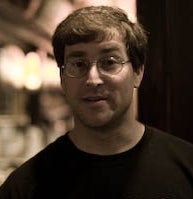
Matt is passionate about the design and development of usable languages for embedded control. You can some of his work at concurrency.cc, a rallying point for parallel programming on the popular Arduino platform. However, most of the time Matt keeps himself busy as a member of the faculty at Berea College.





Authored Comments
<strong>Yes, I am replying to myself. It is perfectly acceptable for anyone with a valid Medicare card to talk to themselves out loud and in public.</strong>
I, for one, am not going to get in the middle of that argument!
(<em>Nor I!</em>)
;)
Humor aside, I have learned, as a computing educator, that teaching and reinforcing effective reading and writing skills (in a technical space or otherwise) is challenging. When students don't have foundations laid down well (like reading and writing), it gets in the way of lots of other learning. It is a major roadblock when you want to see students engage in independent exploration, or when you're trying to encourage students to engage material deeply outside of the classroom.
I found both <a href="https://mitpress.mit.edu/books/early-reading-instruction">Early Reading Instruction</a> and <a href="https://mitpress.mit.edu/books/language-development-and-learning-read">Language Development and Learning to Read</a> (both MIT Press texts by Diane McGuinness) to be fascinating, informative, and comprehensive in this space. They didn't directly help me as a post-secondary educator, but they did inform how I think about reading and writing instruction, as well as how I think about the teaching of programming to novices.
The next time I wander into the Open Source Diner, I'll make sure not to interrupt your conversation with yourself (even if we do agree), but I will pick up the tab on your coffee, if that's OK. Just because it seems like the neighborly thing to do.
If I understand your comment correctly, I think we're fundamentally in agreement.